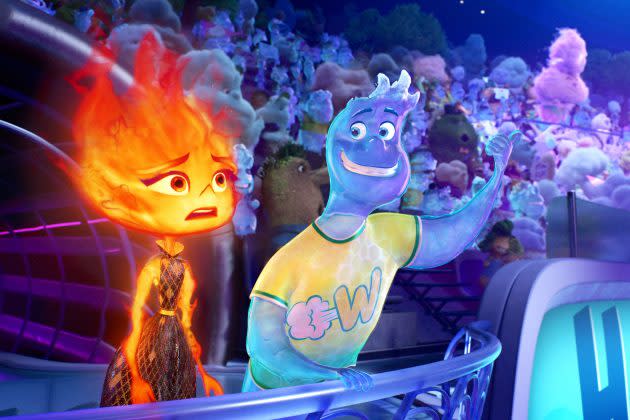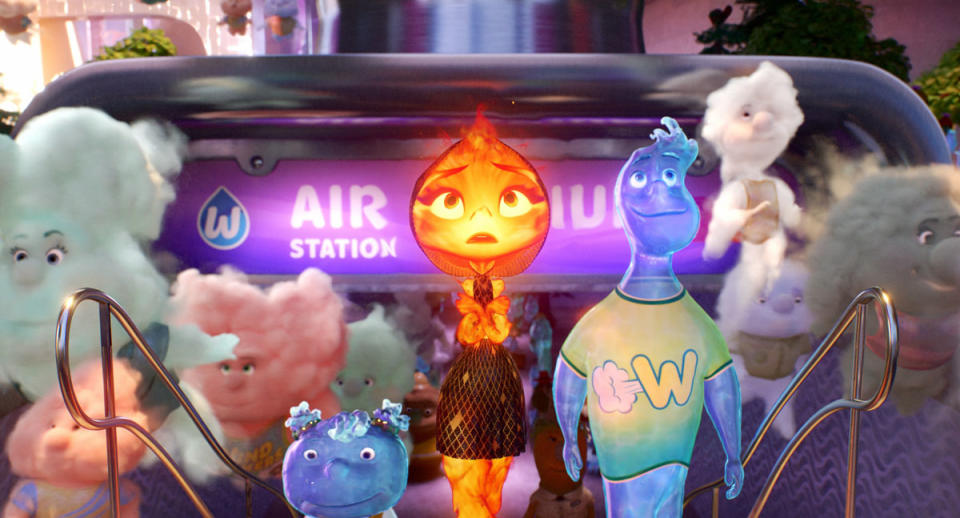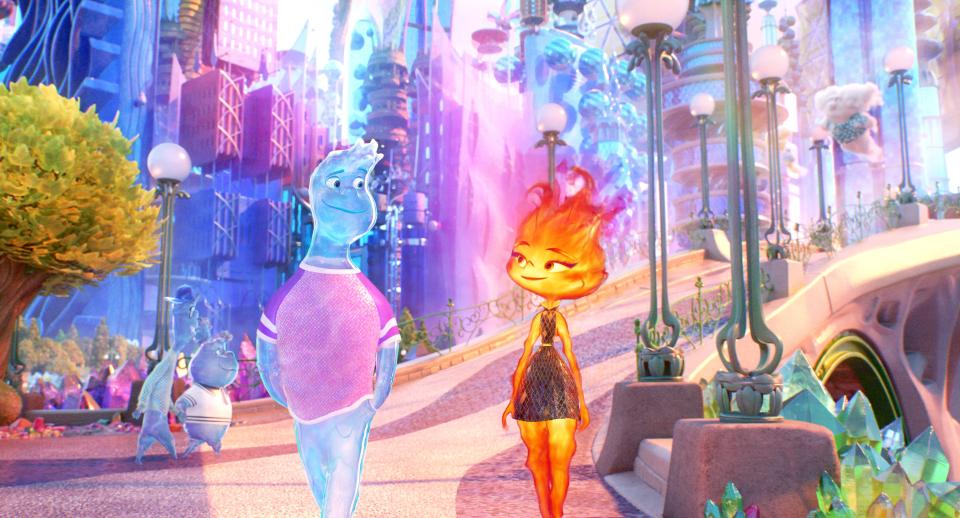‘Elemental’ Composer Thomas Newman On Scoring From A Passive Perspective: “The Scene Presents Itself In A Certain Way, And I Respond Musically”
- Oops!Something went wrong.Please try again later.

For Pixar’s Elemental, composer Thomas Newman was given the challenge of scoring for ‘elemental’ cultures that don’t exist in the real world, while instilling a sense of familiarity for the viewer. He says the real difficulty was to “point towards different cultures and never land on one.”
Directed by Pete Sohn, the story follows Ember (Leah Lewis), a fire resident working in her parents market, whose fiery temper leads her to a chance meeting with Wade (Mamoudou Athie), a sappy water resident working as a city inspector. While fire and water do not mix well, Ember and Wade find themselves growing closer and closer. Rather than focus on the clash between elements for the score, Newman says the most important thing to remember is that it’s a love story.
More from Deadline

DEADLINE: You have a lot of different elements blending together, what were your initial inspirations?
THOMAS NEWMAN: The idea was to point towards different cultures and never land on one. The challenge was that it’s a made up world of elements, but there has to be some familiarity. There’s a sense of otherness, and I think in the case of Wade and Ember, there’s otherness on both sides. She lives on the other side of the river, he lives in town. I think the process was experimental, which was trying different sounds, different voices, and processing them a lot so that you’re not pointing towards any kind of world culture here in our world.
I think it was also very important to remember that it’s a love story. This sense of two people who really get along and genuinely liked each other was more important that this culture clash and element clash.
DEADLINE: Can you talk about the themes of the different characters?
NEWMAN: I don’t think I ever approach things with themes like, ‘Here’s Ember.’ They arrive out of dramatic situations as opposed to musically pointing towards a character. A lot of times, I have ideas that I put up against an image and I learn about what I’m feeling passively as a listener more than actively as a composer.
There’s feelings that arise out of the drama. For me, the most important thing is to always remember that a story is being told and that music wants to help that story be told. The scene presents itself to me in a certain way, and I respond musically. And then Pete would come down to my studio, or we’d be online remotely, and he would oftentimes have the same feeling or he’d say no.

I remember in one case specifically, he never wanted the father to be someone that we felt sorry for. When Ember does her route and comes back and sees her father sleeping, we don’t want to look at him as an old man who can’t stay awake so much as here is a genuinely good man. So, there were areas where there would be decisions we’d have to make in terms of what the music was making us feel.
DEADLINE: I know Pete Sohn has spoken a lot about how personal the story is to him. What was it like working with him on that?
NEWMAN: The movie is very personal to Pete Sohn. He said something very interesting about this notion that he felt oftentimes neither Korean nor American, and what that meant to be kind of othered. I wanted to be very respectful to that and both his parents who did run a shop in the Bronx, like a grocery store, because this meant a lot to him. So there were moments when we had to make sure that we were on the right track as storytellers and still not doing anything would make Pete recognize this very personal story any less because of choices that we made.
You have to be respectful of a story that he wanted to be told in a certain way. When working with a director, I find that you can’t work faster than a director is able to digest the ideas you have. Oftentimes I might’ve felt like I’m on to something and Pete might’ve been slightly slower in coming to that conclusion. You have to earn the trust of a director. I think it’s kind of awarded at first because who doesn’t want to trust anyone but then really earn it in the end. So I just had to be very conscious of that and let him arrive at these conclusions about what music was saying. And oftentimes it might’ve been different than his expectations. Directors all have personalities. They have tempos of engagement and a lot of writing music for movies is people skills. The ability to not only empathize with characters, but to be sympathetic to a director and a director’s methods.
Best of Deadline
Sign up for Deadline's Newsletter. For the latest news, follow us on Facebook, Twitter, and Instagram.

